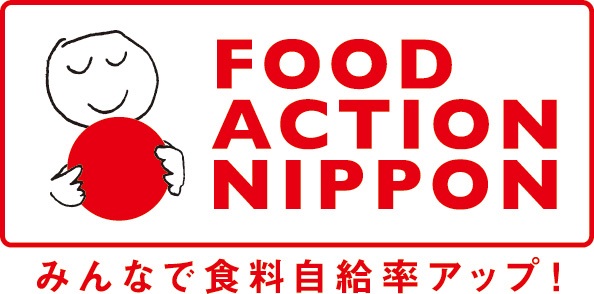- TOP
- List of Projects
- Execution support for “Food Action Nippon”
Execution support for “Food Action Nippon”

- Project Summary
-
Provided execution support for Japanese national movement “Food Action Nippon” aimed to increase self-sufficiency rate. We did this based on our past successful project called “Team Minus 6%”, national movement, battle against global warming.
National movement aimed to improve food self-sufficiency rate: Food Action Nippon
Japan’s food self-sufficiency rate was as low as 39% (on calorie basis), and we have heavily relied on imports from overseas. As a result, the amount of food supply in Japan has susceptible to “policies / regulations”, “import / export volume”, “demand”, “production volume”, “price” etc, of other countries, resulting in the potential risk of Japan not being able to secure stable food supply. In addition, there was a concern about the global food supply shortage due to the rapid increase in the world population and the accelerating desertification, and therefore it has become urgent improve Japan ‘s food self-sufficiency rate. As such, since 2008 the Ministry of Agriculture, Forestry and Fisheries has undertaken the national movement “Food Action Nippon” aimed to improve food self-sufficiency rate, with a goal to raise its rate to 50% by 2020 on calorie basis.
Recommendations on their national movement based on the principle of our successful project “Team minus 6%”
Based on our track records and learnings from our past successful project “Team Minus 6% (national campaign against global warming countermeasures)” where nearly 33,000 companies participated, we presented recommendations to Ministry of Agriculture, Forestry and Fisheries regarding the effective execution method for national movement, together with domestic advertising agencies and major travel agencies. In listing the target items to improve self-supply rate, we focused on the items whose domestic supply level is high with increasing import volume: rice, vegetables, fish and shellfish, livestock products. We also highlighted the by-stakeholder challenges that are involved in supplying these products and defined its mechanism. There were some companies that were making efforts towards this challenge, however it was done so solely by one company as opposed to collaborative efforts, therefore strong message was lacking and did not bring results. In accordance with the principle of national campaign principle, we advised the need to maximize ROI and pressed the importance of collaboration among corporates by synchronized approach / media exposures (timing of promotion, message to improve food self-sufficiency rate, etc to be unified).
Process management and effectiveness measurement for large scale public-private partnership project
We took charge of the process management and effectiveness measurement of campaigns such as “Rice Flour Club” (improvement of self-sufficiency rate of food through spreading rice flour) and “Let’s eat and support!” (Tohoku region’s earthquake disaster reconstruction support). We visualized the effectiveness and achievement level via web survey and clarified the challenges and countermeasures. Also addressed economic outcome research based on sales increase among companies that joined this effort.
- Digital Health
- Disease Awareness/Disease Prevention
- Advanced Medical Technology
- The 100-year Life
- SDGs/ESG
- Food Loss Reduction/Food Safety and Security
- Smart Cities
- Decarbonization/Carbon Neutrality
- Reconstruction Assistance
- Infection Control Measures
- Tourism
- Disaster Management (Prevention and Mitigation)
- Regional Revitalization